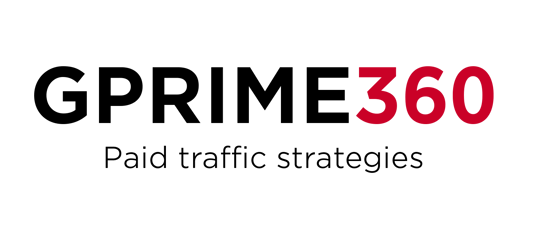Data Driven vs. Data Informed: What’s the Difference?
Learn what it means to be data driven in marketing, how to apply it to Google Ads, and why working with a PPC expert can turn metrics into measurable business growth.
Diego Ribeiro
3/19/20253 min read


Data Driven vs. Data Informed: What’s the Difference?
While the terms are often used interchangeably, there’s a subtle difference:
Data-Informed: You use data to support decisions, but the final call may still be influenced by gut feeling or experience.
Data-Driven: All decisions are grounded in evidence. Data guides the strategy, adjustments, and actions at every step.
In marketing, being data driven goes beyond checking Google Analytics occasionally. It means building a framework where every campaign, ad, and optimization is backed by clear, measurable data.
Why Data Driven Marketing Matters
The marketing landscape has shifted dramatically. Gone are the days of relying on assumptions or vanity metrics. Modern consumers are more connected, and competition is fiercer than ever.
Being data driven allows you to:
Allocate budgets more efficiently
Understand customer behavior
Test hypotheses and scale what works
Improve targeting and messaging
Increase ROI (Return on Investment)
According to a 2023 survey by McKinsey, companies that adopt data driven strategies are 23x more likely to acquire customers and 19x more likely to be profitable.
The Core Pillars of Data Driven Marketing
To truly adopt a data driven mindset, you need more than just access to data. You need structure, tools, and discipline. Here are the main pillars:
1. Clear Objectives
Define exactly what you want to achieve: lead generation, sales, brand awareness, etc.
2. Reliable Tracking
Install and configure tools like:
Google Analytics 4 (GA4)
Google Tag Manager
Conversion Tracking (Google Ads, Meta Ads)
CRM integrations
3. Key Metrics & KPIs
Some of the most important metrics to monitor:
CTR (Click-Through Rate)
CPC (Cost per Click)
CPA (Cost per Acquisition)
ROAS (Return on Ad Spend)
Conversion Rate
Customer Lifetime Value (CLV)
4. Real-Time Optimization
Review campaign performance frequently, ideally every 48-72 hours in active ad accounts.
5. Testing Framework
Data driven marketing involves continuous testing:
A/B testing ads
Testing different landing pages
Adjusting audiences and geolocation targeting
Being Data Driven in Google Ads (PPC)
Google Ads is a goldmine for data. But many advertisers don’t go beyond the basics. Here’s how a data driven expert uses the platform:
Keyword Performance
Analyzing exact match keywords, broad match modifiers, and adding negative keywords to reduce waste.
Hour & Device Analysis
Optimizing bids based on best-performing hours, days, and device types.
Ad Variants
Testing multiple ad versions and using responsive search ads to increase relevance.
Quality Score Optimization
Improving ad rank and reducing CPC by optimizing for Quality Score components: ad relevance, landing page experience, and expected CTR.
Landing Page Insights
Using tools like Hotjar or Microsoft Clarity to monitor user behavior and remove friction.
Common Challenges of Becoming Data Driven
Despite the clear benefits, going data driven isn’t always easy:
Too much data can create analysis paralysis
Lack of skilled professionals to interpret data
Poor tracking setup leads to unreliable insights
Resistance to change inside companies
That’s why it’s crucial to have an expert who not only collects the data but knows what to do with it.
Real-World Impact: What Being Data Driven Looks Like
Let’s imagine two business owners running Google Ads campaigns.
Company A: Launches a campaign with basic keywords, no conversion tracking, and runs the same ads for 3 months.
Company B: Hires a data driven Google Ads specialist. They:
Set up conversion tracking with events and goals
Build a high-conversion landing page
Test headlines, descriptions, and audiences weekly
Pause non-performing ads and scale top performers
After 90 days, Company A sees minimal leads. Company B has reduced its cost per lead by 47% and doubled its lead volume.
The Role of a Data Driven PPC Expert
A true paid media specialist doesn’t just run ads. They:
Build the entire measurement infrastructure
Align business goals with ad KPIs
Read the story behind the numbers
Know when to scale and when to pivot
At our agency, we go further: we create high-converting landing pages at no extra cost, track every step of the funnel, and deliver performance reports that focus on what matters: results.
Final Thoughts
Being data driven is no longer optional. It's the competitive edge that separates growing companies from stagnant ones. In marketing, and especially in paid traffic strategies like Google Ads, using data properly can be the difference between burning budget and scaling with precision.
If you're ready to adopt a data driven mindset, work with a specialist who speaks the language of metrics, growth, and performance.
Let the data lead the way.
Diego Ribeiro Google Ads Specialist | Data Driven PPC for Local Businesses
